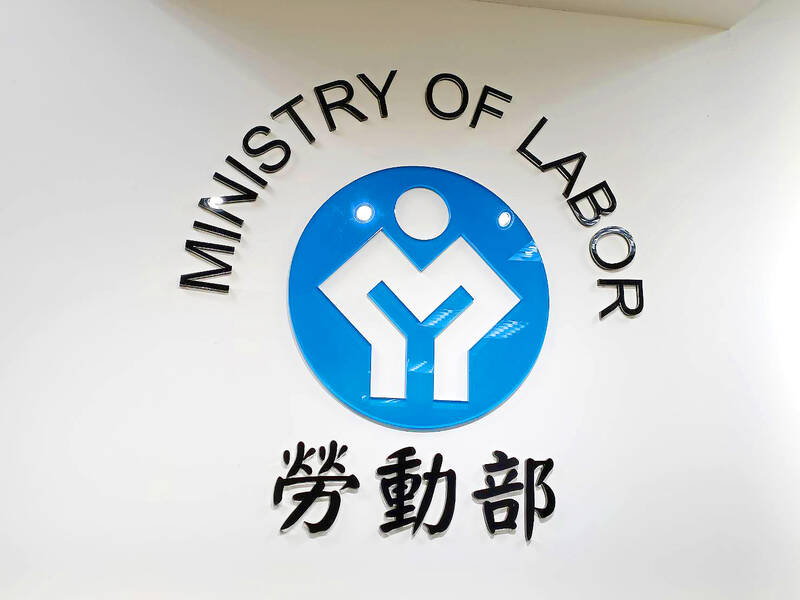A recent rumor claiming that the Taiwanese government is to introduce as many as 100,000 migrant workers from India is part of China’s cognitive warfare, a national security source said on Saturday.
The disinformation, which emerged shortly after Taipei confirmed on Nov. 13 that it is to sign a memorandum of understanding (MOU) with New Delhi before the end of this year on the hiring of Indian migrant workers to Taiwan to help with the labor shortage, is a tactic being employed by Beijing to create social panic and spark tension between Taiwan and India, the source said.
China seems to have spammed the Facebook page of Taiwan’s Ministry of Labor with “modularized messages,” which either demand the ministry make public details of the MOU or reject Indian migrant workers, the source said, adding that at least 2,000 out of 3,600 accounts have met that pattern.

Photo: Lee Chin-hui, Taipei Times
The majority of those accounts are “abnormal” as they show limited information about personal activities and social networking traces, the source said, meaning it is possible they were created to manipulate public opinion regarding the issue.
While Minister of Labor Hsu Ming-chun (許銘春) has openly denied the 100,000 Indian migrant worker influx, the matter has raised the attention of Taiwan’s National Security Council, which is also seeking the intervention of the Ministry of Foreign Affairs, the source said.
This is because the disinformation involves discrimination and could hurt Taiwan-India relations, the source said, adding that it is in the process of developing more effective countermeasures.
However, the MOU issue has drawn heated debate online in Taiwan, and a rally is planned for Saturday against the government’s move.
According to a newly established Instagram group, which is organizing the demonstration, Taiwan does not need to introduce yet another new source of migrant workers.
The move would lead to “stagnant wages forever,” the group said, also raising concerns about women’s safety due to “significant differences” in gender perspectives between India and Taiwan.
It was not good enough for the government to respond to its concerns by only saying “no discrimination,” while providing neither explanations nor supporting measures, the group said.
Meanwhile, the Taiwan International Workers Association (TIWA) said it is not against migrant workers, adding that the key is to practice “equal pay and equal rights for equal work.”
Failure to do so might lower overall labor conditions in Taiwan, which is detrimental for every worker regardless of nationality, the TIWA said.
A local India research association also issued a statement saying it welcomes Taiwan opening its doors to Indian migrant workers, but called for more effort from the government to break stereotypes about India.
Nevertheless, the government still needs to review and improve the structural issues causing low wages in Taiwan as it opens up to migrant workers, the association said.
Bilateral trade between Taiwan and India has risen more than seven-fold from US$1.19 billion in 2001 to US$8.4 billion last year — the highest ever — with New Delhi being Taipei’s 14th largest buyer of goods and its 18th largest supplier, government statistics showed.
According to Ministry of Labor data, there were approximately 750,000 migrant workers in Taiwan as of the end of September, with the majority coming from Indonesia (267,194), ahead of Vietnam (261,301) and the Philippines (152,026).

Taiwan has received more than US$70 million in royalties as of the end of last year from developing the F-16V jet as countries worldwide purchase or upgrade to this popular model, government and military officials said on Saturday. Taiwan funded the development of the F-16V jet and ended up the sole investor as other countries withdrew from the program. Now the F-16V is increasingly popular and countries must pay Taiwan a percentage in royalties when they purchase new F-16V aircraft or upgrade older F-16 models. The next five years are expected to be the peak for these royalties, with Taiwan potentially earning

STAY IN YOUR LANE: As the US and Israel attack Iran, the ministry has warned China not to overstep by including Taiwanese citizens in its evacuation orders The Ministry of Foreign Affairs (MOFA) yesterday rebuked a statement by China’s embassy in Israel that it would evacuate Taiwanese holders of Chinese travel documents from Israel amid the latter’s escalating conflict with Iran. Tensions have risen across the Middle East in the wake of US and Israeli airstrikes on Iran beginning Saturday. China subsequently issued an evacuation notice for its citizens. In a news release, the Chinese embassy in Israel said holders of “Taiwan compatriot permits (台胞證)” issued to Taiwanese nationals by Chinese authorities for travel to China — could register for evacuation to Egypt. In Taipei, the ministry yesterday said Taiwan

Taiwan is awaiting official notification from the US regarding the status of the Agreement on Reciprocal Trade (ART) after the US Supreme Court ruled US President Donald Trump's global tariffs unconstitutional. Speaking to reporters before a legislative hearing today, Premier Cho Jung-tai (卓榮泰) said that Taiwan's negotiation team remains focused on ensuring that the bilateral trade deal remains intact despite the legal challenge to Trump's tariff policy. "The US has pledged to notify its trade partners once the subsequent administrative and legal processes are finalized, and that certainly includes Taiwan," Cho said when asked about opposition parties’ doubts that the ART was

If China chose to invade Taiwan tomorrow, it would only have to sever three undersea fiber-optic cable clusters to cause a data blackout, Jason Hsu (許毓仁), a senior fellow at the Hudson Institute and former Chinese Nationalist Party (KMT) legislator, told a US security panel yesterday. In a Taiwan contingency, cable disruption would be one of the earliest preinvasion actions and the signal that escalation had begun, he said, adding that Taiwan’s current cable repair capabilities are insufficient. The US-China Economic and Security Review Commission (USCC) yesterday held a hearing on US-China Competition Under the Sea, with Hsu speaking on